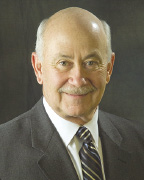Recently, the United States Congress has again begun taking a stronger look at housing reform on their legislative agenda. The U.S. House of Representatives has unanimously cleared legislation permitting the Federal Housing Administration (FHA) to make changes to the popular Home Equity Conversion Mortgage (HECM) program. More commonly known as reverse mortgages, HECM loans allow senior citizens to access equity in their homes.
H.R. 2167, the "Reverse Mortgage Stabilization Act of 2013" was spearheaded in the House of Representatives by Reps. Denny Heck (D-WA) and Patrick Fitzgerald (R-PA). The unanimous vote in the House reflects broad concerns about FHA's financial health. Community associations have a direct stake in reforms to FHA's reverse mortgage program. While homeowners are not required to make payments under the terms of a reverse mortgage, homeowners do remain responsible for taxes, insurance, and association assessments. When these items become delinquent, FHA faces significant losses as municipalities, lenders, and associations seek to enforce homeowner obligations.
FHA Financial
Condition Worsened
According to an independent audit of FHA finances, losses on reverse mortgages have placed a severe strain on FHA's financial condition. Auditors found that the main insurance fund backstopping FHA reverse mortgages has an economic value of negative $5.25 billion.
More recently, President Obama's 2014 budget proposal estimates FHA may require as much as $943 million in direct taxpayer assistance to bolster reserves against future losses. The FHA has never required direct taxpayer assistance to fund claim payments or to increase reserves in its 80 year history.
The FHA is already clamping down on its reverse mortgage offerings, suspending one program and limiting the maximum amount of equity homeowners may withdraw in a second. If H.R. 2167 becomes law, FHA will be granted additional administrative authority to manage and reform its reverse mortgage program.
One key reform under consideration by FHA is a requirement that homeowners demonstrate an ability to pay monthly housing obligations such as taxes, insurance, and association assessments. In some cases, FHA may require that lenders establish the functional equivalent of escrow accounts to ensure homeowners have sufficient funds to pay these monthly housing obligations.
Senate to Debate
H.R. 2167 will be forwarded to the U.S. Senate for debate and consideration. The Senate Banking Committee had scheduled a June 18th hearing on proposals to reform FHA's reverse mortgage program. CAI will continue to monitor congressional action to reform FHA's reverse mortgage program and will provide member updates as the legislative process continues.
In an attempt to guide the House in its agenda, on June 18, 2013, CAI submitted a report to the U.S. House Financial Services Committee Subcommittee on Financial Institutions & Consumer Credit called, "Examining How the Dodd-Frank Act Hampers Home Ownership."
The subcommittee's hearing focused on the Consumer Financial Protection Bureau's Qualified Mortgage (QM) rule, which implements key mortgage lending reforms required by the Dodd-Frank Act. The QM rule requires that mortgage originators reasonably verify borrowers have the ability to make payments under the terms of a mortgage loan before extending credit. The QM rule also mandates that terms and conditions of mortgage credit meet minimum consumer protection standards.
CAI supports mortgage lending and securitization reforms that ensure access to credit on reasonable terms for Americans who choose to live in a community association. Alternatively, CAI strongly opposes any aspects of new mortgage lending and securitization policies that treat homeowners choosing to live in community associations differently. To read the complete comments visit www.caionine.org.
Paul Garrett, CMCA, AMS, PCAM, is 2013 CAI-NE chapter president, and president and CEO of Maine Properties, Inc., Scarborough, Me.
Tags:
House of Reps.: Homeownership reverse mortgages on the agenda
July 03, 2013 - Owners Developers & Managers
 (1).png)








